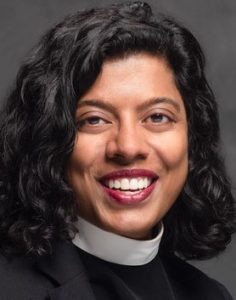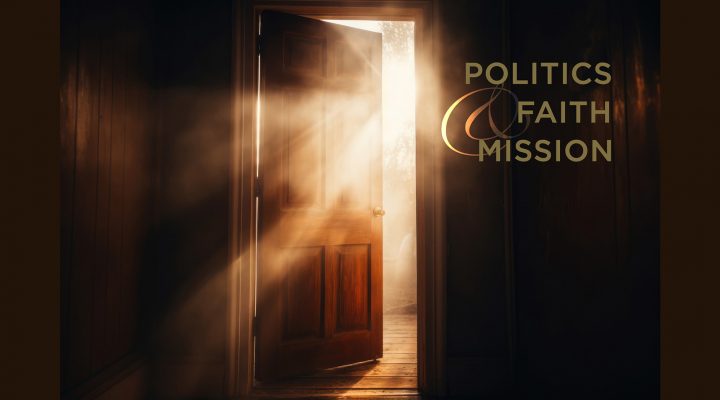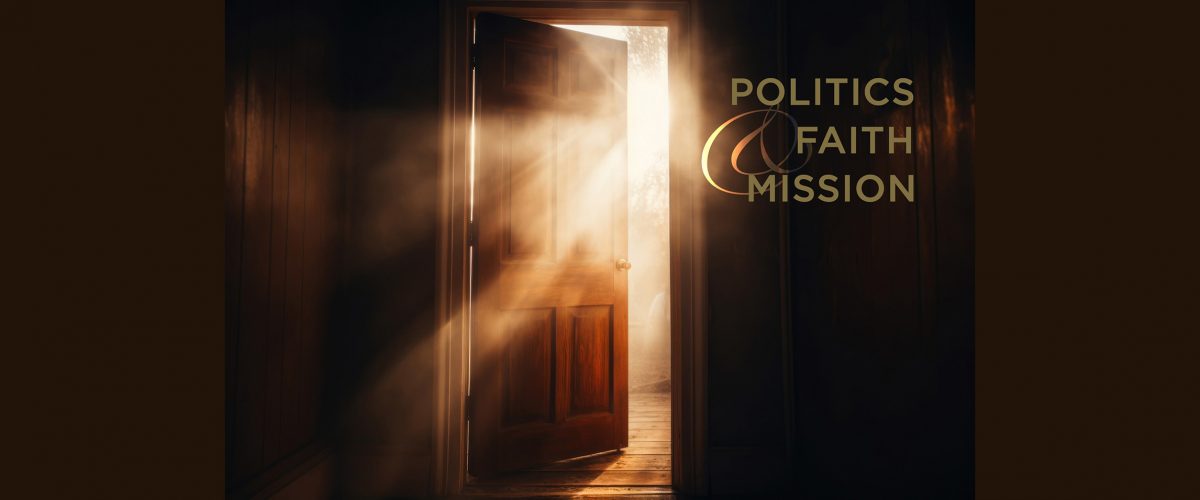Winnie Varghese is an essential voice in the Episcopal Church on issues of race and justice. A fellow Texan, she is the daughter of Indian immigrants. I first met Winnie during her time as priest for ministry and program coordination at Trinity Church Wall Street in New York City. She also previously served as rector and priest-in-charge at St. Mark’s in the Bowery in New York before being named the 23rd rector of St. Luke’s Episcopal Church in Atlanta in 2021. Winnie is a necessary writer, teacher and preacher for the church in this season, and I am so grateful to engage her in this conversation about race, politics, and faith.
Greg Garrett: In the open letter you co-authored in 2020 with our sisters Kelly Brown Douglas and Stephanie Spellers, “Speaking of Freedom,” you referenced Frederick Douglass’ powerful and painful question “What to the slave is the Fourth of July?” As we lean into an election year, I’m well aware that all my concerns about the future of this country and of American Christianity are buffered to some extent by my white skin. As you think about this coming year, what are your own concerns? What call could you offer for white American Christians in 2024 that would echo your letter of 2020?

Winnie Varghese
Winnie Varghese: I am very aware this year of our lack of language about the common good, and naming race and racial history in imagining a just, future commons. It’s fascinating because I believe polling shows that in general Americans like it when there is infrastructure investment, support of unions, new factories, relief of school debt, more money in pockets, less inequity and fewer people hungry or unhoused. We are for that, but language about how we can do that together, all together, seems sparse. Fundamentally, in our country that has to do with race, and to a lesser extent regionalisms, and our self-understanding that there is a limited pie, and you would be a fool not to fight for your slice.
For me, considering the common good, a commons that supports all, is exciting. Building the institutions and systems we would need to feed, heal, equip and employ just feels like a project worth taking on. The best of this country is when we do that, but we also know that those times have been short lived in our country. I don’t believe it is because they don’t capture our imagination. I think it is because the extremely wealthy and powerful and the extremely powerful institutions benefit from our distrust of one another and our distrust of government to be a source of help, and benefit very concretely. They simply make more money, and a little bit of that flows into our pensions, which keeps us aspirationally tied to an exploitative economy.
“We are not just to minimize harm, we are to build the commons, to steward in our time, to leave this place more hopeful and kind.”
The vision of the world for Jesus followers is to be clear eyed about the human and creation/environmental implications of how we live. We are not just to minimize harm, we are to build the commons, to steward in our time, to leave this place more hopeful and kind.
GG: Some of the questions you ask in that open letter apply, broadly, to a number of American Christian denominations, not just our Episcopal Church: “Can a denomination steeped in white supremacy turn and dedicate its life to dismantling the very structures of death that it blessed and built? Can it become Beloved Community, where the flourishing of every person and all creation is the hope of each, where the oppressed are liberated from oppression, and oppressors are at last free of the sin that oppresses?” Let me just ask you to address those questions for us now, in this time, and maybe to unpack our hope for Beloved Community. What are the things that seem to you to be standing in the way of our achieving it?
WV: Yes, I believe in that possibility or I wouldn’t be here, but it takes vigilance and real work.
These are both issues of imagination. We can’t work for what we can’t imagine (MLK), and these are issues of institutions and scale. The first one, most of us can agree on, and this is a primary task of the church. Theology needs to be done in pulpits and parish halls. A quickening of the heart and mind must be the work of the church toward a social good and is essential.
The question for most of us is whether institutions can do good. I believe they can, or I wouldn’t work for one. My vocation has been exercised within an institution. That’s true for most of us. We can do some good, maybe even a lot of good, and I feel called to be a part of figuring that out.
“We can do some good, maybe even a lot of good, and I feel called to be a part of figuring that out.”
The scale of human suffering around us requires that we think about scale, and government has to do the same. I don’t think it takes human suffering seriously enough to ask everyone to do something charitable in their free time, if they can. One in four children in this nation go to bed hungry. That’s sin. There is enough food. Imagination, political will, and institutions or organizations, if you like that word better, are the only way to take that on effectively.
There were generations when the church built hospitals, schools and settlement houses. There were generations when government did the same. We have lost our common will to the false market of government giving taxpayer dollars to private companies to provide utilities and services, things we need to thrive. We have to be as wise as serpents to live in peace.
GG: White Christian nationalism appears to me and to many of the people I work with to be one of the greatest threats to both American Christianity and to our nation. You serve as rector of St. Luke’s in Atlanta, a church noted for having a voice for justice, but I know tensions around race, politics and democracy are not alien to your context. How would you define white Christian nationalism? Can you reflect on why so many people who look like me have embraced an obedience to Donald Trump instead of to their professed religious faith?
WV: St. Luke’s has a proud history of care and service to the community, but like many historic American institutions, it also has a history of living prosperously alongside profound injustice. St. Luke’s was a segregated institution, and its leaders defended that in their time. What is convicting is that you can always find Black and white leaders in the same time, and often within the institution, demanding something else. That calls me to look for where we are going along with the culture in this time. What do we not see or think is too disruptive to engage now?
Christian nationalism is a theocracy of Christians. Like Muslim or Hindu nationalism, it is a weaponizing of the name of a religion, in this case my religion, Christianity, as a kind of moral gloss on a highly militarized, authoritarian state. Nationalisms trade in power, period. Hindu Nationalism in India has taken a wonderfully diverse set of practices from the massive sub-continent and reduced them to a literally muscular God or two that will be on our side, whatever we do. Christian nationalism conflates Jesus with whiteness, straightness and armed masculinity. People of many racial and other identities find it compelling because it feels powerful and clear.
“Nationalisms trade in power, period.”
Why are people compelled by it? We have a lot of proof that not too many people are compelled by it. The majority of Americans are not. It is troubling that anyone is compelled by it, but generations of racist formation don’t dissolve on their own. It’s important to remember these are minority opinions and also boldly proclaim the alternatives, because there are many.
The rising racial and ethnic diversity of the population of this country, and the political aspirations of those communities are two reasons for the rise in white nationalism, but it is not an inevitable result of a rise in diversity. Rather, it is a provoked outcome by politicians in a party losing a viable future for itself. Either party could have chosen it. One did, and both are now formed by its demands.
We don’t have to respond to diversity in that way. More and more American families reflect the diversity of the country in their families. That sea change is being contested by a radical minority, but we know minorities can rule and often have in this country.
GG: One of the most powerful parts of your 2020 open letter was this: “We long for the day that our church might be free to become what we have until now only aspired to be: a true church following a crucified and risen Lord and witnessing to God’s just future.” In your preaching and teaching at St. Luke’s and in the larger church, how do you offer scriptural and theological encouragement for this life? Where are you finding hope that we might live into that dream of Beloved Community?
WV: St. Luke’s is reading The Amen Effect by Sharon Brous for Lent. She captures the complexity of the time and the work to stay human and humane really well. The book assumes the deep and consistent textual work that rabbis do. She writes of reading at Jewish Theological Seminary in New York, (I went to Union Theologian Seminary across the street) reading and knowing a story was important but not why. She photocopies it and stashes it for later. Twenty years later she finds it and knows exactly why it is important. It is the story of her community.
Times like this require a deep dive into Scripture, theology and community. The work is to equip our imaginations so we can spark the imagination of others. It is striking to me how many are writing about awe, attention, imagination and curiosity. How many are naming loneliness and isolation in this hyper-connected, content-heavy time.
I find myself relieved or restful when it’s time to read the texts again. Some of that might be because it is a comfortable pattern in my life, but I think it has more to do with the relief of hearing of another way to be or noticing the wrestlings of the pasts.
For example, for the first time this year, I noticed that God promises Abraham he will be an ancestor. In that story, I usually go to the renaming or the launching out into the world, or the promise of children, but this year I saw ancestor. I am guessing because so many are writing about being a good ancestor. The texts unlock, and sometimes that unlock is in our own protest of what we are reading. I find that unlocking as Spirit driven as I am ever going to be, and a source of endless possibility.

Greg Garrett
Greg Garrett teaches creative writing, film, literature and theology classes at Baylor University. He is the author of two dozen books of fiction, nonfiction, memoir and translation, including the critically acclaimed novels Free Bird, Cycling, Shame and The Prodigal. His latest novel is Bastille Day. He is one of America’s leading voices on religion and culture. Two of his recent nonfiction books are In Conversation: Rowan Williams and Greg Garrett and A Long, Long Way: Hollywood’s Unfinished Journey from Racism to Reconciliation. He is a seminary-trained lay preacher in the Episcopal Church. He lives in Austin with his wife, Jeanie, and their two daughters.
More from this series:
Politics, faith and mission: A conversation with Kaitlyn Schiess
Politics, faith and mission: A conversation with Russell Moore
Politics, faith and mission: A BNG interview series on the 2024 election and the Church
Politics, faith and mission: A talk with Tim Alberta on his book and faith journey
Politics, faith and mission: A conversation with Jemar Tisby
Politics, faith and mission: A conversation with Leonard Hamlin Sr.
Politics, faith and mission: A conversation with Ty Seidule
Politics, faith and mission: A conversation with Jessica Wai-Fong Wong


